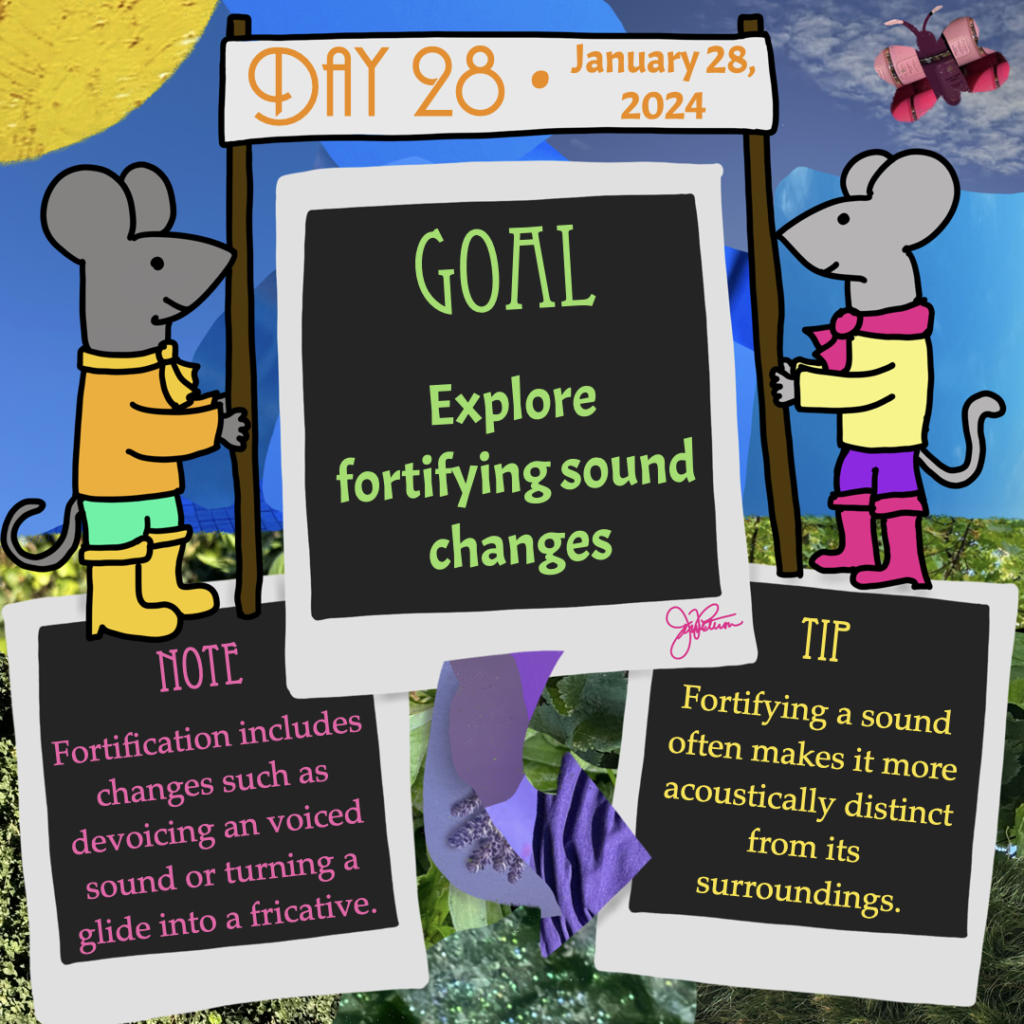
Goal: Explore fortifying sound changes
Note: Fortification includes changes such as devoicing a voiced sound or turning a glide into a fricative.
Tip: Fortifying a sound often makes it more acoustically distinct from its surroundings.
Work focus: Learn/Brainstorm/Try
Today is the final day of prompts focusing on consonant sound changes (tomorrow turns the focus to sound changes that affects vowels). Specifically, today’s prompt focuses on sound changes that fortify consonant sounds—or sound changes that make consonants acoustically stronger. For example, sometimes a sound may be inserted, as in this example sound change.
(example a) When a fricative follows a nasal consonant, a stop is inserted that matches the placement of the nasal. For instance, *imsu becomes impsu.
You can combine different types of sound changes, such as combining assimilation and fortition. For example, the example sound change (a) could be expanded to this: When a fricative follows a nasal consonant, the nasal shifts to match the placement of the fricative, and a voiceless stop is inserted. A form like *imsu becomes intsu.
The next two example sound changes demonstrate how fricatives can be affected by fortition:
(example b) The alveolar fricatives become affricates when occurring in a word-initial position and when followed by a vowel. For instance, *zio becomes dzio, but *zlata remains zlata.
(example c) Fricatives become stops when they follow another consonant, so *insu becomes intu.
Sometimes these sound changes can be quite specific. For instance, consider example (d):
(example d) The alveolar [l] shifts to a [d] in front of high vowels, so *lina becomes dina.
All these are simply meant to be examples to inspire you. I encourage you to research and explore more sound changes that occur in languages to continue to be inspired by the many ways consonants can shift in different environments.
When you find sound changes you are interested in, try them out on your forms to see how they affect the proto-forms you have in your lexicon so far. As I mentioned yesterday, it’s good to smash some of your proto-forms together to see how sound changes may affect longer word units.
